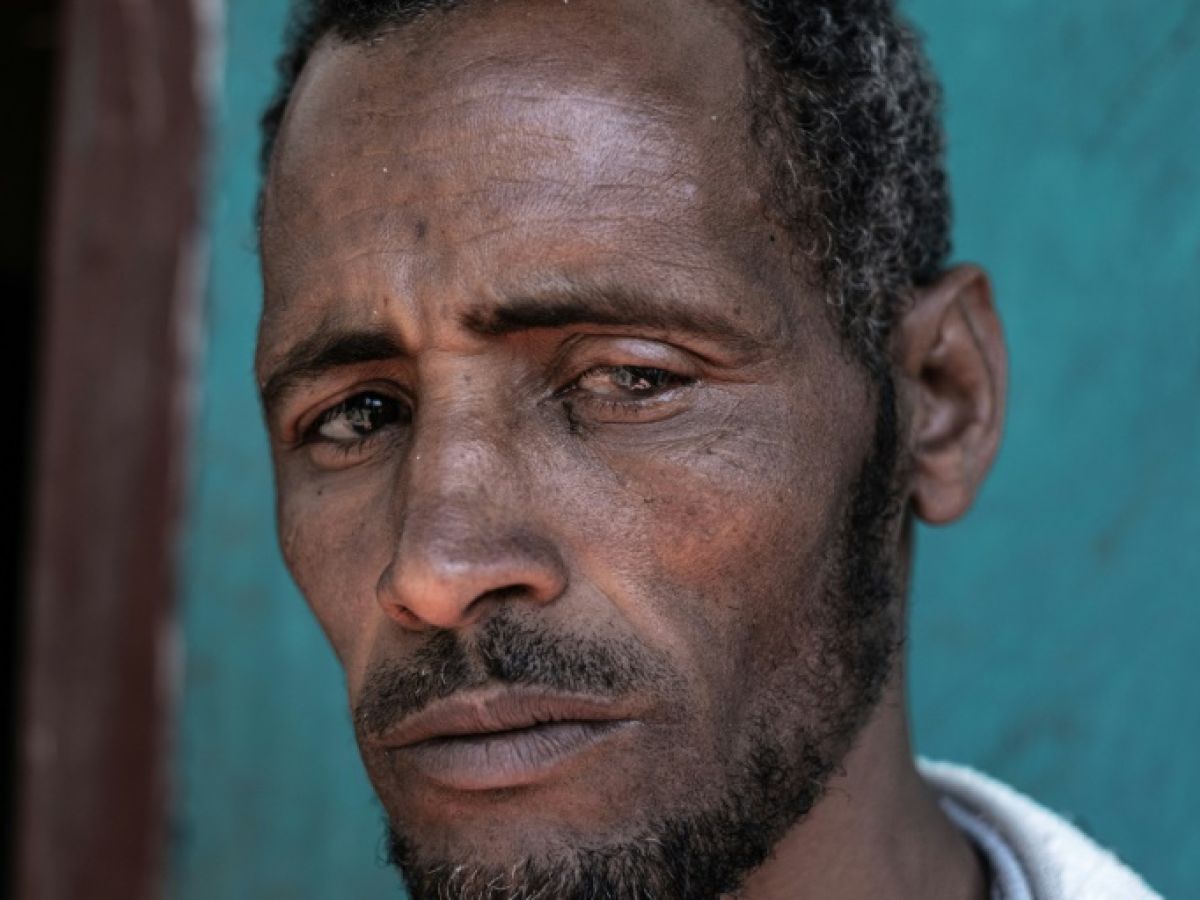"I'm afraid of going blind": Scheicho Scheifa blinks regularly and is bothered by sunlight. The cornea of his left eye is cloudy, a sign of trachoma, an eye infection endemic in Ethiopia that can lead to blindness.
The pain is so severe that the 35-year-old farmer and baker has "completely stopped working." The lanky man with graying hair and beard remains at home in Asano, a small village in the Central Region, about 100 kilometers from Addis Ababa.
"I recently learned that the surface of my (right) eye was injured and that my left eye was severely damaged. The pain is affecting my ability to work and perform daily tasks," the father of two told AFP in his bare house.
With each attack, "I tear out my eyelashes to relieve the discomfort," he says, before saying, worried: "I'm afraid of going blind every time the pain strikes."
– “Hyperendemic” –
This is far from an isolated case in Ethiopia, home to approximately 120 million people. This poor East African country is home to more than half of the 103 million people worldwide who live in areas where trachoma is endemic, according to the World Health Organization (WHO).

Trachoma is "hyperendemic in many of the poorest and most rural regions" of the world and "Africa remains the most affected continent and the one where control efforts are most intensive," the UN organization also states.
Trachoma is an eye infection caused by the bacterium Chlamydia trachomatis, which is transmitted through contact with the eyes or nose of infected people, but also by flies that have come into contact with the eye or nose discharge of infected people.
It particularly affects women, who are in regular contact with children, who constitute the reservoir of the disease.

Eventually, this causes the eyelid to turn inward, causing the eyelashes to rub against the eyeball, damaging the cornea. Patients experience significant pain and may lose their sight, usually between the ages of 30 and 40.
Despite the pain, which had persisted since childhood, Scheicho Scheifa hesitated for a long time before undergoing surgery. For his mother, who was also affected, this attempt had not "improved" things, he says.
- " Prevent " -
He was finally convinced by Gizachew Abebe, an ophthalmologist and member of the Christian Blind Mission (CBM), a German NGO that raises awareness among the most vulnerable populations.

"We are informing the community that it is important to take care of their personal hygiene (...) it is a very important point to prevent trachoma," emphasizes the 60-year-old man, who gathered several dozen people in a small village near Asano.
"You must wash your face with clean water," he told the gathering. This is a challenge for this rural community, which must walk three hours to reach a river, where the water is shared with livestock, a breeding ground for bacteria. "That's why we, along with the government, are digging wells to provide access to clean water," Gizachew Abebe continued.
The NGO also carries out operations in the markets, calling on people to get tested using loudspeakers in Butajira, the largest town in the region, which has a specialized hospital.

In less advanced cases, treatment with antibiotics or ointment is sufficient to control the disease. But for more serious cases, like Scheicho Scheifa, surgery is necessary.
This takes place in a small health center without electricity. After a local anesthetic, Sister Tadelech, an ophthalmologist, makes an incision on the upper eyelid. "It's very difficult to cut," she explains. The operation lasts about thirty minutes.
"I feel better," Scheicho Scheifa said soberly before going home.
According to the WHO, by the end of 2024, 21 countries, including Togo and Ghana, had eliminated trachoma from their list of public health problems. In Ethiopia, "we can reduce it," but it will be "very difficult to eradicate (...) until people's standard of living improves," says Gizachew Abebe.

